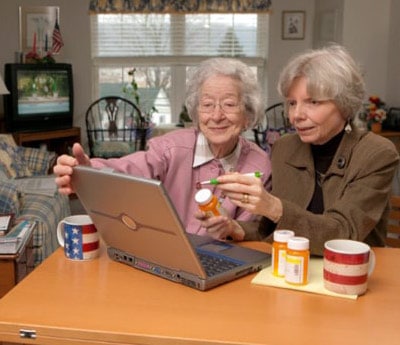
By Rose O. Sherman, EdD, RN, NEA-BC, FAAN
As health systems design well-being programs for staff, one often overlooked social determinant of work health is the stress of being a caregiver to elderly parents and relatives. In a recent article in the July-August Harvard Business Review titled Your Company Needs an Eldercare Policy, the authors point out that for the first time in history, the number of working adults providing eldercare has surpassed the number providing childcare. Not surprisingly, I am hearing more and more about this issue from leaders during sessions when we talk about wellbeing. Consider the personal story a Chief Nursing Officer shared with me:
My life is like a country song – I kid you not. I am the only child of two parents now in their 90s, living over a thousand miles away from me. The stress of managing their increasingly complex health problems is taking a terrible toll on me. I have had to fly home twice in the last six weeks to deal with a crisis. First, my Mom fell and fractured her hip, then my Dad was involved in a car accident and was not coherent when I talked with him on the phone. For years, they were able to compensate for problems the other had, but no longer – they both need supervision and are adamant in not wanting to move into a retirement community. My spouse and I both have stressful jobs, so dropping everything to get on a plane to help manage their issues has become very complicated. I tried to hire a Geriatric Care Manager, but could not find one in their community. I have hired caregivers to help them, but you would be amazed at how even the best home health agencies struggle with the rate of no shows among their staff assigned to make visits. I wonder how many nurses and leaders are in my situation, struggling to keep all these balls in the air. I hesitate to discuss this at work because there is no clear endpoint in sight.
This CNO is definitely not alone. According to the HBR article, 14% of the current US workforce is confronting similar issues and the number continues to grow as the population ages. When discussing this in workshops, many organizations report that much of the FMLA use is for elder caregiving. It is especially challenging for the nursing workforce as the family elder caregiving burden often falls on the son or daughter who is a nurse. At some point in their careers, most nurses will need to provide eldercare in addition to managing their work responsibilities.
The article cites some of the key needs of employees facing eldercare challenges. These include but are not limited to:
- Flexible schedules
- Resources for reliable and affordable professional caregivers
- Professional help such as Geriatric Care Managers to guide in planning
- Psychological support
Bright Horizons is cited as a resource that many employers now contract with as part of their employee benefit package to help employees with finding and coordinating elder services. As we have discussed before on this blog, wellbeing at work is complicated today because so many factors in outside of our work environments impact our work experience. We need to add eldercare to that list and help support staff who have these challenges.
References
Dychtwald, K., Fulmer, T., Morison, R & Terveer, K. (July/August 2025). Your company needs an eldercare policy. Harvard Business Review, p. 66-75.
© emergingrnleader.com 2025
Our Most Popular Right Now The New World of Work Workshop
Two Brand New Workshops for Your Team in 2025
*** Trending – Building Bridges Not Walls: Leading Multigenerational Work Teams – Click Here for More Information Building Bridges Not Walls
Nurse and Nurse Leader Work-Life Balance and Well-Being: Nursing Leadership Strategies for Success – Click Here for More Information WorkLife Balance and Wellbeing WS
New Book – Click Here to Buy







